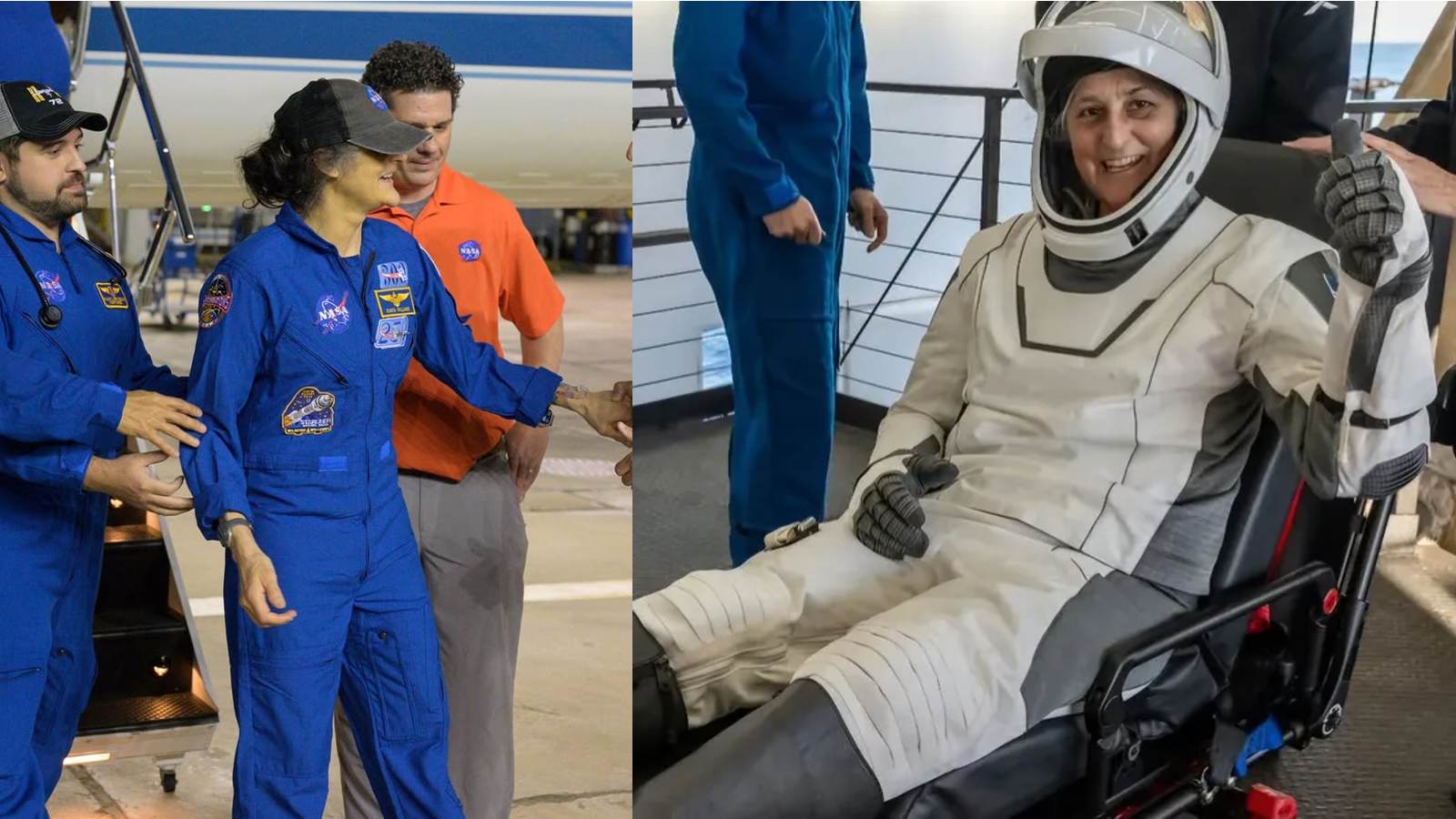NASA astronauts Sunita Williams and Barry Wilmore have just returned from a nine-month space mission. Upon their return, they may face several health challenges.
NASA astronauts Sunita Williams and Butch Wilmore have returned to Earth after spending an incredible 286 days in space. As they come back to Earth’s gravity, there is a lot of talk about the health challenges they might face during their readjustment. In space, Sunita experienced a loss of bone density and muscle mass due to the lack of gravity. But it is not just about what happened up there–Earth’s gravity brings its own set of challenges. After months in an environment completely different from Earth, factors like microgravity, confinement in small quarters, isolation, and radiation exposure can all impact their health. Know the common health problems Sunita Williams might face.
10 health problems Sunita Williams may face
Here are some of the most common health problems Sunita Williams may face on Earth:
1. Cardiovascular issues
Microgravity in space can negatively affect your heart by reducing its workload. This can make your heart shrink and also weaken. “It is often seen that astronauts struggle with low blood pressure and poor blood circulation. This can further lead to dizziness, fatigue, and low blood pressure levels,” says Dr Anup Khatri, Orthopedic. Due to this, Sunita Williams may need to take utmost care of her physical well-being, especially her cardiovascular system.
2. Weak muscles and bone loss
Without gravity, muscles and bones weaken over time. Despite strict workout routines, astronauts can experience significant bone density loss. A study published in the International Journal of Molecular Sciences found that astronauts can lose up to 10 percent of their bone mass after just six months in space, which is 10 times greater than the loss seen in postmenopausal women. Sunita Williams may find it difficult to walk or perform everyday tasks until her body regains strength, and long-term bone loss can increase the risk of fractures.

3. Back pain
Astronauts often suffer from back pain due to muscle loss in the lower back and changes to the spine caused by weightlessness. A study published in the Journal of Pain Research revealed that 77 percent of astronauts report pain during their mission, and 47 percent experience acute pain after returning. Sunita Williams could face ongoing back pain, even chronic issues, after her nine-month mission.
4. Weak immunity
Space travel can weaken the immune system, increasing the risk of infections, allergies, and skin rashes. A study published in NPJ Microgravity suggests that astronauts might also face changes in autoimmunity, making them more susceptible to these conditions upon return. Autoimmunity is a condition in which the body’s immune system mistakenly attacks its own healthy tissues.
5. Baby’s feet
In space, extra pressure on the astronauts’ feet little pressure can lead to softened, sensitive skin that can peel off. This makes walking uncomfortable, and Sunita Williams might find it challenging to walk initially due to this ‘baby’s feet’ effect.
6. Balance and coordination problems
It is quite common for astronauts to face difficulty in balancing and maintaining coordination. “Once astronauts are back on the earth they feel disoriented, unsteady, or experience vertigo,” suggests Dr Khatri. Sunita Williams can struggle with coordination, which can make it difficult to make even the slightest movements. In this case, she might need rehabilitation exercises to regain her strength.
7. Facial puffiness and nasal congestion
Astronauts often return with puffiness in their faces and nasal congestion due to the fluid shift that occurs in space. Sunita Williams may experience these symptoms as her body adjusts to gravity again.
8. Sleep problems
Astronauts often experience disturbed sleep patterns during their missions due to the lack of a regular day-night cycle in space. Research published in Military Medical Research suggests this issue can persist after returning to Earth, affecting their circadian rhythms and sleep quality.

9. Cognitive function decline
The isolation and confinement of space travel can take a toll on mental health. “The extended missions can impair cognitive functions like decision-making, reaction time, and emotional stability. Sunita William might experience cognitive challenges, such as depression or anxiety, due to the stress of long-duration spaceflight and limited social interaction,” explains Dr Khatri.
10. Cancer risk
Long-term exposure to space radiation can increase the risk of developing cancer. A study in Life highlights that this radiation exposure can also lead to central nervous system issues, tissue damage, and radiation sickness, posing significant health risks for astronauts like Sunita Williams.
#Health #problems #Sunita #Williams #face #Earth




